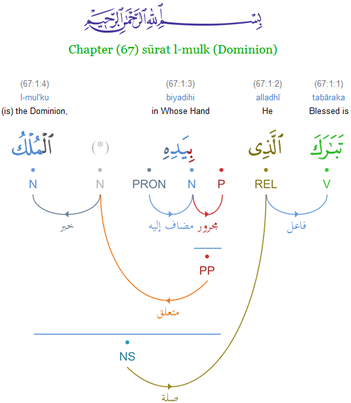|
Postpositive Adjective
A postpositive adjective or postnominal adjective is an adjective that is placed after the noun or pronoun that it modifies, as in noun phrases such as ''attorney general'', ''queen regnant'', or ''all matters financial''. This contrasts with prepositive adjectives, which come before the noun or pronoun, as in noun phrases such as ''red rose'', ''lucky contestant'', or ''busy bees''. In some languages (Spanish, Welsh, Indonesian, etc.), the postpositive placement of adjectives is the normal syntax, but in English it is largely confined to archaic and poetic uses (e.g. "Once upon a midnight ''dreary''", as opposed to "Once upon a ''dreary'' midnight") as well as phrases borrowed from Romance languages or Latin (e.g. ''heir apparent'', '' aqua regia'') and certain fixed grammatical constructions (e.g. "Those ''anxious'' to leave soon exited").Rodney Huddleston, ''English Grammar: An Outline'', CUP 1988, p. 109. In syntax, postpositive position is independent of predicative position ... [...More Info...] [...Related Items...] OR: [Wikipedia] [Google] [Baidu] |
Adjective
In linguistics, an adjective (list of glossing abbreviations, abbreviated ) is a word that generally grammatical modifier, modifies a noun or noun phrase or describes its referent. Its semantic role is to change information given by the noun. Traditionally, adjectives were considered one of the main part of speech, parts of speech of the English language, although historically they were classed together with Noun, nouns. Nowadays, certain words that usually had been classified as adjectives, including ''the'', ''this'', ''my'', etc., typically are classed separately, as Determiner (class), determiners. Here are some examples: * That's a funny idea. (attributive) * That idea is funny. (predicate (grammar), predicative) * * The good, the bad, and the funny. (substantive adjective, substantive) Etymology ''Adjective'' comes from Latin ', a calque of grc, ἐπίθετον ὄνομα, epítheton ónoma, additional noun (whence also English ''epithet''). In the grammatical traditi ... [...More Info...] [...Related Items...] OR: [Wikipedia] [Google] [Baidu] |
Clause
In language, a clause is a constituent that comprises a semantic predicand (expressed or not) and a semantic predicate. A typical clause consists of a subject and a syntactic predicate, the latter typically a verb phrase composed of a verb with any objects and other modifiers. However, the subject is sometimes unvoiced if it is retrievable from context, especially in null-subject language but also in other languages, including English instances of the imperative mood. A complete simple sentence includes a single clause with a finite verb. Complex sentences contain multiple clauses including at least one ''independent clause'' (meaning, a clause that can stand alone as a simple sentence) coordinated either with at least one dependent clause (also called an embedded clause) or with one or more independent clauses. Two major distinctions A primary division for the discussion of clauses is the distinction between independent clauses and dependent clauses. An independent clause can s ... [...More Info...] [...Related Items...] OR: [Wikipedia] [Google] [Baidu] |
Arabic Grammar
Arabic grammar or Arabic language sciences ( ar, النحو العربي ' or ar, عُلُوم اللغَة العَرَبِيَّة ') is the grammar of the Arabic language. Arabic is a Semitic language and its grammar has many similarities with the grammar of other Semitic languages. Classical Arabic and Modern Standard Arabic have largely the same grammar; colloquial spoken varieties of Arabic can vary in different ways. The largest differences between classical and colloquial Arabic are the loss of morphological markings of grammatical case; changes in word order, an overall shift towards a more analytic morphosyntax, the loss of the previous system of grammatical mood, along with the evolution of a new system; the loss of the inflected passive voice, except in a few relict varieties; restriction in the use of the dual number and (for most varieties) the loss of the feminine plural. Many Arabic dialects, Maghrebi Arabic in particular also have significant vowel shifts and ... [...More Info...] [...Related Items...] OR: [Wikipedia] [Google] [Baidu] |
Romanian Grammar
Standard Romanian (i.e. the ''Daco-Romanian'' language within Balkan Romance) shares largely the same grammar and most of the vocabulary and phonological processes with the other three surviving varieties of Balkan Romance, namely Aromanian, Megleno-Romanian, and Istro-Romanian. As a Romance language, Romanian shares many characteristics with its more distant relatives: Italian, French, Spanish, Portuguese, Catalan, etc. However, Romanian has preserved certain features of Latin grammar that have been lost elsewhere. This could be explained by a host of arguments such as: relative isolation in the Balkans, possible pre-existence of identical grammatical structures in its substratum (as opposed to the substrata over which the other Romance languages developed), and existence of similar elements in the neighboring languages. One Latin element that has survived in Romanian while having disappeared from other Romance languages is the morphological case differentiation in nouns. Neve ... [...More Info...] [...Related Items...] OR: [Wikipedia] [Google] [Baidu] |

